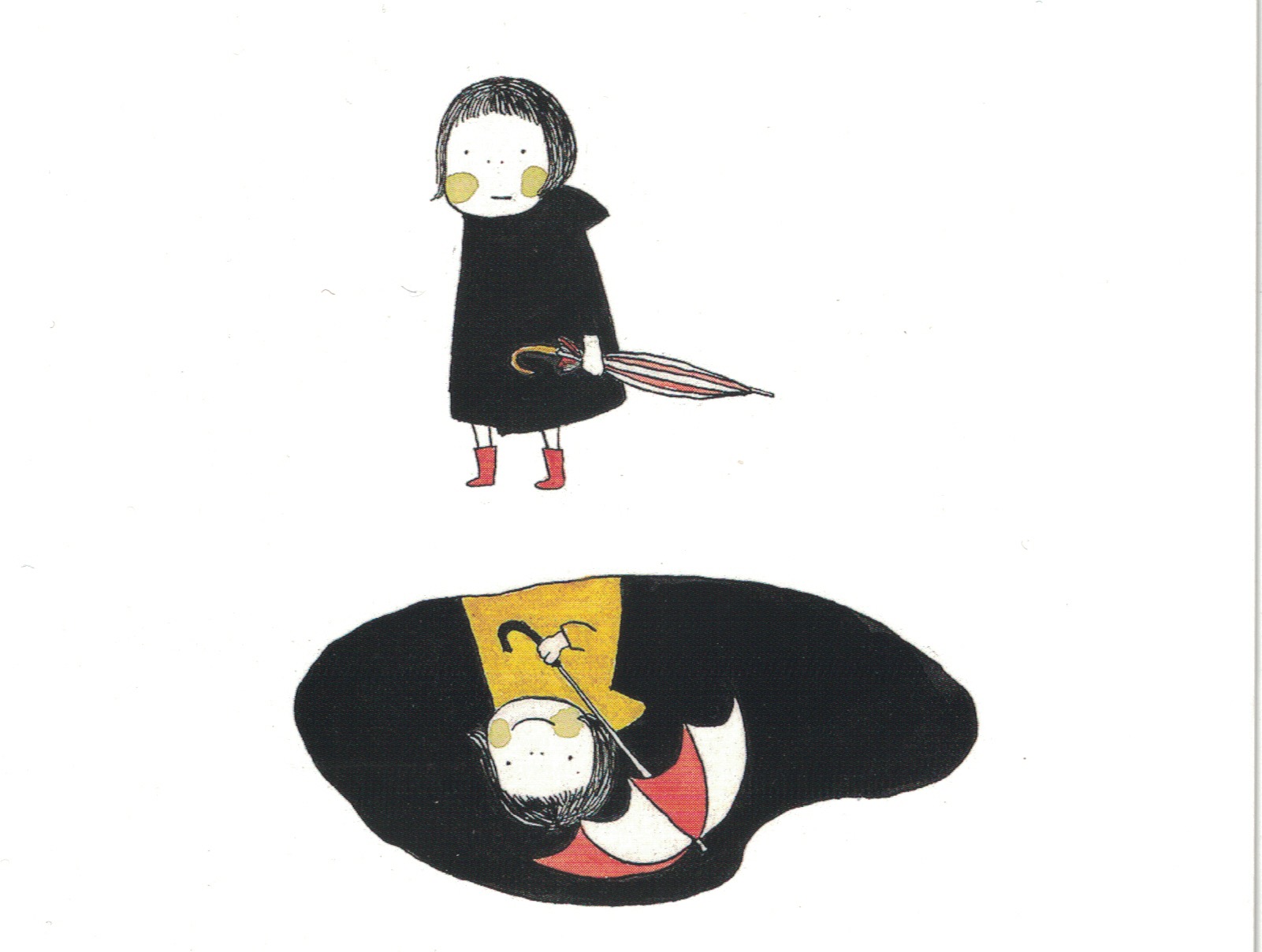和訳は英文の下にございます。/ The Japanese translation is below the English text.
HOW TO USE EXPRESSIONS FOR HOPE AND DESIRE
Contents
1. Summary
2. Expressing your own hope and desire
(1) -Tai desu
(2) Hoshii desu
3. Expressing the second person’s hope and desire
(1) Recommended expression: ...yoo desu
(2) The use of “-tai desu” and “hoshii desu”
1) In an affirmative or negative sentence
2) In a question
(3) The use of “-tagatte-imasu” and “hoshigatte-imasu
4. Expressing the third person’s hope and desire
(1) “-Tagatte-imasu” "hoshigatte-imasu" are more direct
(2) “…Yoo desu” is an indirect expression1. Summary
In this post, we will discuss expressions for hope and desire of various subjects.
“Various subjects” means we have different ways to express desire of the first person (the speaker or writer), of the second person (the addressee) and of the third person (the one who is neither the speaker or writer, nor the addressee).
In the table below, we organized the expressions we recommend for everyday use. In the following sections, we will discuss each case and some other possibilities.
| The Subject | Section in this Post | How to say the subject wants to take an action [with a verb] | How to say the subject would like something [with a noun] |
|---|---|---|---|
| First person | 2 | [Watashi wa] yasumitai desu. (I would like to rest.) | [Watashi wa] jitensha ga hoshii desu. (I would like a bicycle.) |
| Second person, in affirmative and negative sentences | 3 (1) | Anata wa yasumitai yoo desu ne. (It seems that you would like to rest.) | Anata wa jitensha ga hoshii yoo desu ne. (It seems that you want a bicycle.) |
| Second person in questions | 3 (2) 2) | [Anata wa] Yasumitai desu ka? (Would you like to rest?) | [Anata wa] Jitensha ga hoshii desu ka? (Would you like a bicycle?) |
| Third person in a more direct way | 4 (1) | Guroobaa (a dog) wa soto e ikitagatte-imasu. (Grover apparently wants to go out) | Aka-chan wa miruku o hoshigatte-imasu. (The baby apparently wants some milk.) |
| Third person in a more indirect way | 4 (2) | Grover wa soto e ikitai yoo desu. (It seems Grover wants to go out) | Grover wa mizu ga hoshii yoo desu. (It seems Grover wants some water.) |
Note: If you have not learned the following expressions for hope and desire, please click for related posts:
- -Tai desu => How to Express the Speaker’s Desire
- Hoshii desu => How to Express the Speaker’s Desire
- -Tagatte imasu => How to Express the Desire of the Second and Third Person
- Hoshigatte imasu => How to Express the Desire of the Second and Third Person
2. Expressing your own hope and desire
(1) -Tai desu
Example 1. [Watashi wa] Yasumitai desu. (I would like to rest.)
A verb connected to “-tai”, like “yasumitai” in Ex. 1, directly expresses the speaker’s desire.
“Desu” after “yasumitai” shows politeness, or the psychological, respectful distance placed by the speaker between himself/herself and the addressee. As a result, it sounds softer. So, we often add “desu” in the end when we tell our own desire to others.
However, if you are talking to yourself, or to your family or close friends, say:
Ex. 2. Yasumitai. (I want to rest.)
It is because in a sentence ended with just “-tai”, our worded desire is not coated with politeness, but naked, so to say. It is like a voice coming straight from the gut.
(2) Hoshii desu
Ex. 3. [Watashi wa] Jitensha ga hoshii desu. (I would like a bicycle.)
“Hoshii” is the same as “-tai”, in that this is an expression for hope and drier of the speaker only. The difference is with “hoshii”, we express the object of desire with a noun like “jitensha” in Ex. 3.
Also, “desu” after “hoshii” works the same way as it does after “-tai”.
Therefore, when you are talking to your friend or family about your desire, or when you are thinking about it, you don’t say “desu” but just say:
Ex. 4. Jitensha ga hoshii. (I want a bicycle.)
3. Expressing the second person’s desire
As for the expressions of hope and desire for the second person, you need to choose the appropriate one among a couple of ways, depending on the situation.
(1) Recommended expression: “…yoo desu”
Our starting point is, we can never know what the other person really wants. Therefore, it sounds more polite and humble to say: “It seems you want such and such” rather than assertively say “You want this”.
This is why we think the use of “…yoo desu” (“it seems to me that…”), which is the grammar to express conjecture, is more practical than other ways when we talk about the hope and desire of the second person.
Ex. 5. [Anata wa] Yasumitai yoo desu ne. (It seems that you want to rest.)
Ex. 6. [Anata wa] Yasumitakunai yoo desu ne. (It seems that you don’t want to rest.)
Ex. 7. [Anata wa] jitensha ga hoshii yoo desu ne. (It seems that you want a bicycle.)
Ex. 8. [Anata wa] jitensha ga hoshikunai yoo desu ne. (It seems that you don’t want a bicycle.)
“…Yoo desu” (it seems to me that…) follows a sentence and creates a new ending for the sentence. It shows that the situation described in the first sentence is the speaker’s guess.
For example, in Ex. 5 and 7 have the first sentences, “yasumitai” ([I] want to rest) and “jitensha ga hoshii” ([I] want a bicycle”) respectively. Note the “I” here means the addressee or the person you are talking to.
By adding “…yoo desu” after it, however, the subject of the entire sentence becomes the speaker. Thus, they now mean: “It seems to me that you want to rest.” and “it seems to me that you want a bicycle.” respectively.
To make a negative sentence, make the first sentence negative, while keeping “…yoo desu” as is (See Ex. 6 and 8).
(2) The use of “-tai desu” and “hoshii desu”
1) In an affirmative and negative sentence
Basically, we do NOT use “-tai desu” and “hoshii desu” for the second person in the affirmative or negative sentence.
Just for that reason, however, when people do use them to you, they want to tell you that they know your hope and desire as much as or better yourself!
Here are some examples:
Ex. 9. Anata wa hontoo wa kono hito to kekkon-shitaku-nai desu. (You in truth don’t want to marry him/her.)
Ex. 10. Anata wa tabako ga hoshii…hoshii…hoshii… (You want a cigarette…want one…want one…)
When a fortuneteller is telling you what you are actually feeling subconsciously (Ex. 9) or when a hypnotist is trying to hypnotize you by telling you how you should be feeling (Ex. 10), they may use “-tai” and “hoshii”, even if “you” are the subject.
It sounds like they are suggesting that you should feel in a certain way, or sometimes the atmosphere is like brainwashing.
2) In a question
In asking a question, however, we ALWAYS use the first-person expressions “-tai desu ka?” or “hoshii desu ka?” about the desire or hope of person you are talking to.
Why?
Because the purpose of asking is to hear their hope and desire back.
They will naturally answer with “-tai desu” and “hoshii desu”. We form the question using “-tai” and “hoshii” to elicit their answer from their point of view.
Ex. 11. Amerika no Kurisumasu o shiritai desu ka? (Would you like to know about American Christmas?)
Ex. 12. Hai, shiritai desu! (Yes, we would like to!)
Ex. 13. Ringo, ikutsu hoshii desu ka? (How many apples would you like?)
Ex. 14. Yottsu hoshii desu! (I would like four!)
(3) The use of “-tagatte-imasu” and “hoshigatte-imasu”
There are two other expressions for hope and desire of the second person, “-tagatte-imasu” and “hoshigatte imasu”.
However, we don’t use them often.
It is because if you use them, it implies that the person’s desire is so strong that you can easily see it.
People don’t often know that their desire is so apparent, and sometimes are embarrassed or displeased when another mentions it using these expressions.
Ex. 15. Kasabuta o hagashitagatte-iru ne. Dame dayo. (You want to peel your scab. Don’t.)
In this case, I unconsciously touch my scab all the time, and my friend directly points it out and give me a warning.
Ex. 16. “Omae wa ore o koroshitagatte-iru na.” to Satori wa ryooshi ni iimashita. (“You want to kill me, don’t you,” said Satori to the hunter.)
Satori is an imaginary ferocious animal appearing in Japanese folk tales. They live in remote mountains and can read people’s mind.
In the story, the hunter was actually thinking of attacking the animal while they confronted each other on a mountain path. He was naturally taken aback, and felt vexed.
4. Expressing the third person’s desire
In a third person’s expressions of hope and desire, we can use either of “-tagatte imasu” “hoshigatte imasu”, or “…yoo desu” that we discussed in Section 3 (1).
The difference is “-tagatte imasu” and “hoshigatte imasu” sound more direct, and “…yoo desu” sounds more indirect and softer.
(1) “-Tagatte-imasu” “hoshigatte-imasu”
Grover is a dog who is very expressive. He shows his desires and feelings with all his body and facial expressions, so “-tagatte imasu” is appropriate to talk about his hopes and desires.
Ex. 17. Guroobaa wa soto e ikitagatte-imasu. (Grover apparently wants to take a walk.)
Ex. 18. Guroobaa wa mizu o hoshigatte-imasu. (Grover apprently wants some water.)
At times, it is more appropriate to use “-tagatte-imasu” “hoshigatte-imasu” for a person, too. It is when you tell someone the hope or desire of someone else who directly told you about it.
Ex. 19. [In the School Principal’s office, a vice principal is talking to the principal] Senjitsu, Yamada-sensei to hanashimashita. Sensei wa gakkoo o yamete, kaigai no daigakuin ni ikitagatte-imasu. (The other day, I talked Teacher Yamada. He wants to leave his job and study abroad at a graduate school.)
(2) “…Yoo desu” is an indirect expression
As we said earlier, “…yoo desu” shows the speaker’s conjecture. It doesn’t assert and has the nuance of “I could be wrong but…”, so it sounds softer.
Ex. 20. Ame ga sugokute, kyoo wa minna nihongo no kurasu ni kitaku nai yoo desu. (It is raining very hard, and it seems that no one wants to come to the Japanese lesson today.)
Related posts:
=> How to Express the Speaker’s Desire
=> How to Express Desire of the Second and Third Person
[End of the English post]
希望・欲求表現の使い方
目次
1. まとめ
2. 自分の希望・欲求の表現
(1) ~たいです
(2) ほしいです
3. 二人称の希望・欲求の表現
(1) おすすめの表現: ~ようです
(2) 「~たいです」と「ほしいです」
1) 肯定文と否定文において
2) 疑問文において
(3) 「~たがっています」と「ほしがっています」
4. 三人称の希望・欲求の表現
(1) より直接的な表現「~たがっています」「ほしがっています」
(2) よりソフトな表現「~ようです」1. まとめ
この投稿では、さまざまな主語の希望・欲求表現について考えます。
「さまざまな主語」というのは、日本語には人称によって違った表現があるからです。「一人称」の主語(話し手か書き手)、「二人称」の主語(話し相手)、そして「三人称」の主語(話し手や書き手本人でも、話し相手でもない人)のことを言う三つの場合があります。
下表に、おすすめの表現をまとめました。この後の節で、それぞれの表現と、その他、使える表現についてご説明します。
| 主語 | この投稿で扱う節 | 主語がある行動を取ることを望む時 (動詞を使って) | 主語がある物を望む時 (名詞を使って) |
|---|---|---|---|
| 一人称 | 2 | [私は] 休みたいです。 | [私は] 自転車がほしいです。 |
| 二人称の肯定文と否定文において | 3 (1) | あなたは休みたいようですね。 | あなたは自転車がほしいようですね。 |
| 二人称の疑問文において | 3 (2) 2) | [あなたは] 休みたいですか。 | [あなたは] 自転車がほしいですか。 |
| 三人称、より直接的な表現 | 4 (1) | グローバー(犬)は外へ行きたがっています。 | 赤ちゃんはミルクをほしがっています。 |
| 三人称、より間接的な表現 | 4 (2) | グローバーは外へ行きたいようです。 | グローバーは水がほしいようです。 |
注:以下の希望・欲求表現の文法については、下線部をクリックすると関連記事につながります。
- ~たいです => 自分の希望・欲求の表し方
- ほしいです => 自分の希望・欲求の表し方
- ~たがっています => 二人称と三人称の希望・欲求の表し方
- ほしがっています => 二人称と三人称の希望・欲求の表し方
2. 自分の希望・欲求の表現
(1)~たいです
例1.[私は] 休みたいです。
例のように動詞が「たい」と結びつくと、話者がその行動を欲していることになります。
また、例にある「です」は丁寧な態度、すなわち心理的に、敬意をもって相手と距離を置く態度を示します。柔らかく聞こえるため、自分の希望・欲求を言う時はよく「です」を加えます。
しかし、自分に向かって、あるいは家族や親しい友人に対しては、
例2.休みたい。
と言います。「~たい」で終わる文は丁寧表現にくるまれておらず、あなたの心の声そのままがいわば裸の状態で表れるからです。
(2)ほしいです
例3.[わたしは] 自転車がほしいです。
「ほしい」は「~たい」と同様に話者本人のみの希望や欲求を表します。違いは、「ほしい」を使う時は、欲求の対象が、例3の自転車のように名詞で表されることです。
また、「ほしい」のあとの「です」は「~たい」の後と同じ働きをします。
ですから、自分の欲しいものについて考えたり、家族や友人に話したりするときは以下のように「です」が不要になります。
例4.休みがほしい。
3. 二人称の希望・欲求の表現
二人称の希望・欲求表現には、いくつか選択肢がありますので、その都度状況に合うものを選んでください。
(1)おすすめの表現: 「~ようです」
大前提として、他の人が何をしたいかとか、何を欲しがっているか、本人にしかわかりません。ですから、「あなたはこれを欲している」と断言するより、「あなたはこれを欲していると思われる」という方が丁寧で謙虚な感じになります。
それで、第二人称の希望・欲求の表現には、推測を表す「~ようです」を使うのが実用的だと思うのです。
以下の例文を見てください。
例5.[あなたは] 休みたいようですね。
例6.[あなたは] 休みたくないようですね。
例7.[あなたは] 自転車がほしいようですね。
例8.[あなたは] 自転車がほしくないようですね。
「ようです」は他の文の後に付いて、一つの文の終結部になります。そして前の文についての話者の推測を表します。
上の例5、7では、「休みたい」「自転車が欲しい」が元の文です。ここでは主語は相手です。
しかし、そこに「ようです」を加えると、「私には思われる」という意味になり、文全体の主語は話者に転換します。こうして、「あなたが休みたいと思っているように私には思われる」「あなたが自転車が欲しいと思っているように私には思われる」という意味になります。
なお、否定文を作るには、例6、8にあるように、前の文を否定にし、「~ようです」は変えません。
(2)「~たいです」と「ほしいです」
1) 肯定文と否定文において
基本的に、「~たいです」「ほしいです」は二人称の肯定文・否定文に使いません。「~たいです」「ほしいです」は話者本人の希望・欲求を表すものだから。
ですから、もしも誰かがあなたにこれを使ったら、その人は言いたいのです、あなたの希望・欲求についてはあなた本人と同じくらい、あるいはよりよく知っていると。
例9.あなたは本当はまだ結婚したくないです。
例10.あなたはタバコがほしい……ほしい……ほしい……
占い師があなたが意識下で感じていることを告げる(例9)とか、催眠術師があなたがどう感じるべきかを告げつつ催眠にかけようとしている(例10)ような時、その人たちはあなたが主語なのに「~たい」「ほしい」と言うかもしれません。
どう思うべきかを相手に暗示しているような、時には洗脳しているような雰囲気です。
2) 疑問文において
一方、話している相手の希望・欲求を尋ねる時は、「~たいですか?」「ほしいですか?」のように、一人称表現を使います。
なぜか。
尋ねる目的は、相手から返ってくる希望・欲求を聞くことだからです。
相手は、自分のことですからもちろん「~たいです」「ほしいです」で答えます。相手が答えやすいように、質問は、相手の立場に立った希望・欲求表現で行うのです。
例11.アメリカのクリスマスを知りたいですか?
例12.はい、知りたいです!
例13.リンゴ、いくつほしいですか?
例14.四つ欲しいです!
(3)「~たがっています」と「ほしがっています」
二人称では、この他に、「~たがっています」「ほしがっています」という表現が使えます。
しかし、必要でない場合は、お勧めしません。
なぜなら、これを使うと、その人の欲求がとても強いため、容易に見透かせるということになるからです。
誰でも自分の希望や欲求がそんなにあからさまだとは思っていません。指摘されると恥ずかしくなったり、不愉快になったりすることもあるからです。
例15.かさぶたをはがしたがっているね。だめだよ。
例えば、友だちが私にこう言ったなら、私がかさぶたを触ってばかりいることを率直に言っているのです。
例16.「お前は俺を殺したがっているな」とサトリは猟師に言いました。
サトリは昔話に出てくる獰猛な動物です。山奥に住んでいて、人の心が読めるのです。
この話では、猟師は山道でサトリに出会い、進退窮まったところです。猟師は本当にサトリに襲いかかろうと思っていたので、すっかり驚き、くやしくなりました。
4. 三人称の希望・欲求の表現
三人称の希望・欲求を表すには、前節の「~たがっています」「ほしがっています」と、「~そうです」が使えます。違いは、以下の通りです。
(1) より直接的な表現「~たがっています」「ほしがっています」
グローバーという犬はとても表情豊かで、欲求や感情を体中や顔の表情で表します。それで、グローバーの希望や欲求を言うのに「~たがっています」は適切な表現です。
例 17. グローバーは散歩したがっています。
例 18. グローバーは水をほしがっています。
人間についても、「~たがっています」「ほしがっています」が適切な場合があります。それは、誰かに直接聞いた希望・欲求について、第三者に伝える時です。
例19.[校長室で、教頭が校長に] 先日、山田先生と話しました。先生は学校をやめて海外の大学院に行きたがっています。
(2) よりソフトな表現「~ようです」
前述したように、「~ようです」は話者の推測を表すので、断定ではなく、「違うかもしれないけれど」という意味合いのあるソフトな表現です。
Ex. 20. 雨がすごくて、今日はみんな日本語のクラスに来たくないようです。
関連記事
=> 自分の希望・欲求の表し方
[和文部終わり]




